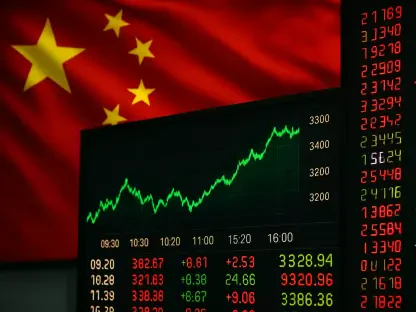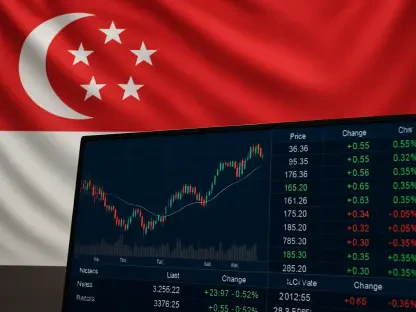President Trump’s sudden imposition of tariffs has caused significant turmoil in global trade, leading to various challenges for the Canadian economy. In response, Liberal Leader Mark Carney has unveiled an extensive plan aiming to steer Canada through these turbulent times. Drawing on his extensive experience as a central banker, Carney asserts that he is well-prepared to guide Canada if elected as Prime Minister, detailing measures designed to counteract the economic disruptions triggered by Trump’s policy.
Carney’s Economic Strategy
Immediate Actions
Addressing the immediate needs of the Canadian economy, Carney proposes several urgent measures to mitigate the adverse effects of Trump’s tariffs. One of his primary initiatives includes relaxing employment insurance requirements, thereby offering rapid assistance to workers who have been laid off due to reduced business operations. This measure is vital in maintaining a stable workforce and ensuring that laid-off individuals receive the necessary support to transition to new employment opportunities.
In addition to supporting workers, Carney focuses on providing businesses with essential financial liquidity during these challenging times. He suggests deferring corporate tax payments and GST remittances, which would allow businesses to retain more cash flow and continue their operations without immediate financial burdens. This deferral is intended to prevent businesses from collapsing due to sudden financial strain and ensure they have the resources to weather the economic turbulence.
Recognizing the impact of tariffs on industries, Carney plans to leverage the Business Development Bank of Canada (BDC) to supply additional capital to sectors hardest hit by the new trade policies. By increasing the financial support available to these industries, Carney aims to stabilize the sectors most vulnerable to tariff-induced disruptions, preventing widespread layoffs and maintaining industrial productivity.
Furthermore, Carney acknowledges the financial anxieties faced by retirees, who are concerned about selling their investments in a declining market. To address this, he proposes reducing the minimum withdrawal amount from registered retirement income funds (RRIFs) by 25 percent. This reduction would enable retirees to retain more of their investments, thus mitigating the need to sell assets at unfavorable prices. Carney also plans to increase the guaranteed income supplement for low-income seniors, ensuring that vulnerable populations receive enhanced support during economic downturns.
Medium-Term Goals
Beyond immediate measures, Carney’s strategy includes several medium-term goals designed to stimulate economic growth and ensure long-term stability. A pivotal component of his plan involves developing natural resource projects to reduce Canada’s reliance on energy imports from the U.S. and other foreign sources. By focusing on moving Western Canadian oil to eastern markets, Carney aims to minimize the need for importing approximately 500,000 barrels of oil daily, thereby strengthening Canadian energy independence and bolstering the national economy.
To facilitate this energy strategy, Carney intends to dismantle internal trade barriers within Canada. These barriers have historically impeded economic efficiency and national economic unity. By directing senior bureaucrats to prioritize the removal of these obstacles, Carney seeks to streamline internal trade, improve market accessibility, and enhance overall economic performance. Removing these trade barriers is expected to foster greater collaboration among provinces and territories, contributing to a more integrated and robust economic structure.
Carney’s approach emphasizes leveraging domestic resources to create sustained economic growth and stability. By focusing on investment in natural resource projects and addressing barriers to internal trade, his strategy aims to build a resilient economic foundation capable of withstanding external shocks. These medium-term goals reflect Carney’s commitment to fostering a self-reliant and innovative economy, ensuring Canada’s long-term prosperity amidst global uncertainties.
Poilievre’s Criticisms and Proposals
Poilievre’s Counterarguments
Conservative Leader Pierre Poilievre has voiced significant criticism regarding Carney’s proposed strategies, particularly questioning Carney’s reliability due to his support for previous policies such as the carbon tax. Poilievre argues that Carney’s prestigious titles do not necessarily translate into effective economic leadership, and he insists that a fresh Conservative government is essential to address the current economic crisis and restore stability in Canada.
Poilievre’s critique extends to Carney’s past experiences, highlighting the criticism Carney faced from pro-Brexit factions during his tenure in the U.K. This, according to Poilievre, suggests potential shortcomings in Carney’s ability to navigate complex economic situations. By questioning Carney’s track record, Poilievre aims to challenge Carney’s credibility and advocate for alternative solutions to the economic challenges posed by Trump’s tariffs.
Poilievre’s counterarguments are rooted in the conviction that Carney’s policy proposals may not effectively address the root causes of the economic instability. He emphasizes the need for innovative and dynamic leadership, capable of implementing fresh strategies that diverge from Carney’s past approaches. Poilievre’s criticisms position him as a proponent of change, advocating for a departure from conventional economic policies and championing the introduction of new perspectives to steer Canada through the crisis.
Alternative Conservative Measures
In stark contrast to Carney’s proposals, Poilievre presents a set of alternative measures aimed at supporting the Canadian economy. While there are points of convergence between their plans, Poilievre’s approach includes distinctive elements designed to provide comprehensive economic aid. One of his key proposals involves implementing worker aids to support individuals affected by tariffs, mirroring Carney’s initiatives. Additionally, Poilievre suggests reducing RRIF withdrawal requirements, aligning with Carney’s strategy to alleviate retiree financial anxiety.
Poilievre’s economic agenda also emphasizes accelerating natural resource projects to boost Canada’s economic growth. His plan includes establishing a ‘rapid resource project office,’ responsible for expediting approvals for energy ventures. This office would aim to streamline the approval process, setting a maximum review period of one year for resource projects. Poilievre believes that efficient project approvals are crucial for rejuvenating the energy sector and enhancing Canada’s international competitive edge.
Poilievre’s alternative measures underscore his commitment to robust economic support frameworks and efficient administrative processes. By advocating for accelerated project approval and comprehensive worker aid, Poilievre endeavors to present a viable alternative to Carney’s strategies. His proposals highlight a pragmatic approach to resolving economic instability, emphasizing swift decision-making and strategic investments to restore confidence in Canada’s economic landscape.
The Wider Economic Impact
Root Causes of Financial Volatility
The article identifies President Trump’s tariffs as the primary catalyst behind the current financial volatility, causing widespread anxiety among investors and retirees. The sudden imposition of high tariffs on goods from multiple countries has resulted in trillions of dollars in lost wealth, severely impacting stock markets and destabilizing the global economic environment. This upheaval necessitates urgent and effective responses from Canadian leaders to safeguard the nation’s economic stability.
Carney and Poilievre are both keenly aware of the need to counter these disruptive impacts and restore economic equilibrium. Their respective strategies aim to address the financial anxiety felt by retirees and the uncertainty pervading the business community. Amidst this turbulence, Carney draws on his past experiences managing financial crises, providing reassurance to the public regarding his ability to navigate the current challenges. His emphasis on immediate and medium-term measures highlights a comprehensive approach to stabilizing the economy.
Navigating Crisis
President Trump’s abrupt imposition of tariffs has sparked notable disruption in global trade, presenting a range of challenges for the Canadian economy. Addressing these issues, Liberal Leader Mark Carney has introduced a comprehensive strategy aimed at navigating Canada through the resulting upheaval. With his substantial background as a central banker, Carney emphasizes that he is thoroughly equipped to lead Canada if he were to become Prime Minister. His proposed measures are specifically designed to mitigate the economic disturbances caused by Trump’s policies. Carney’s plan underscores his intention to leverage his vast financial expertise to stabilize the Canadian economy amid the uncertainties brought about by the tariffs. He suggests a mix of fiscal and monetary policies tailored to counteract the adverse impacts, ensuring that Canada remains resilient and robust despite the global trade tensions initiated by the U.S. administration’s abrupt actions.









